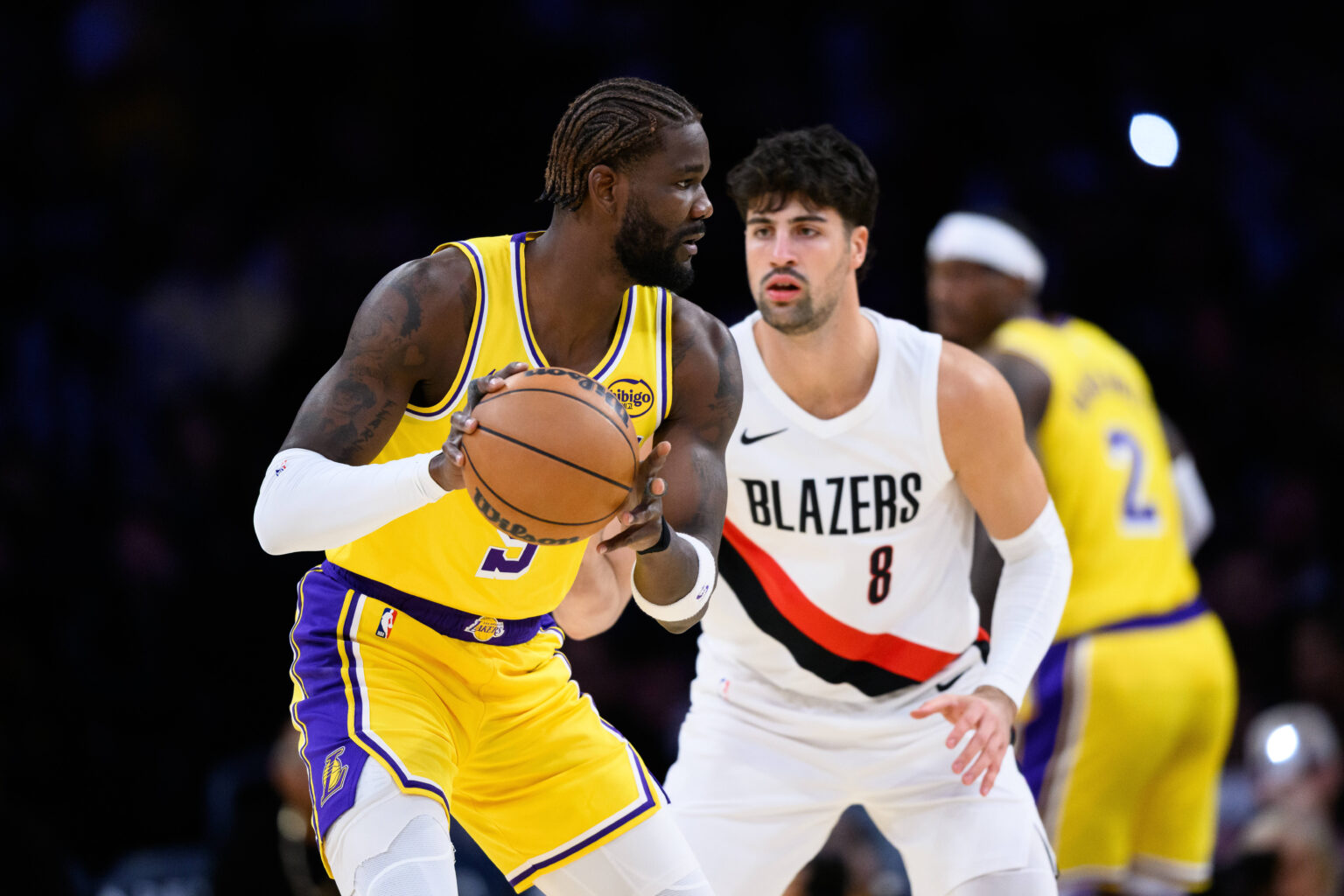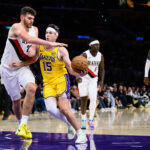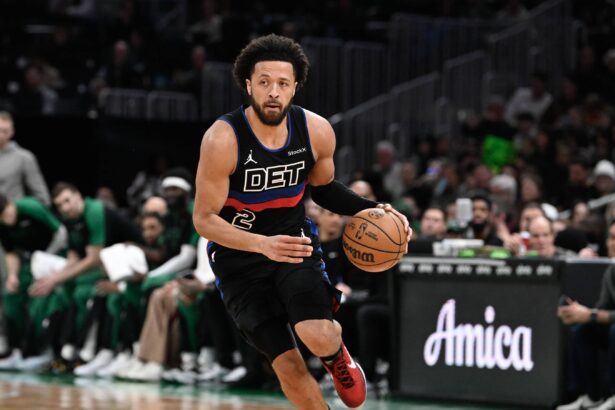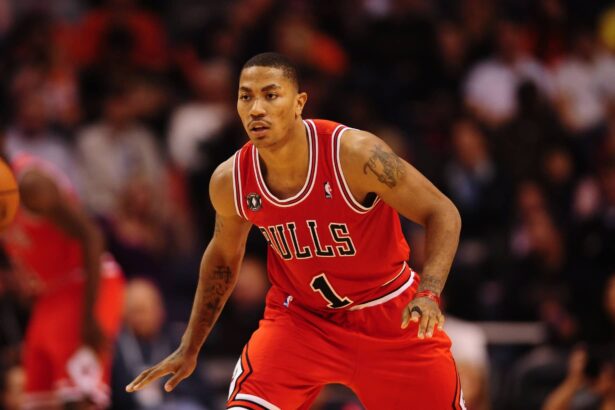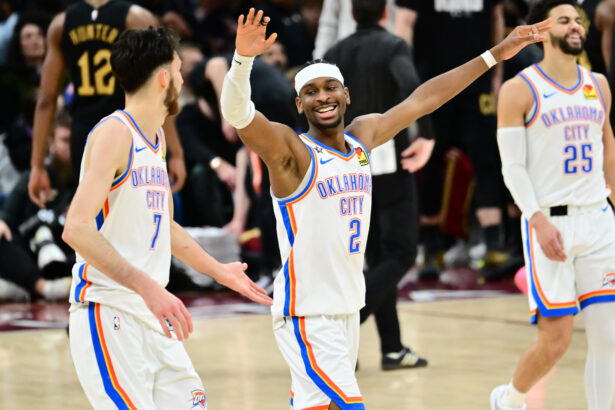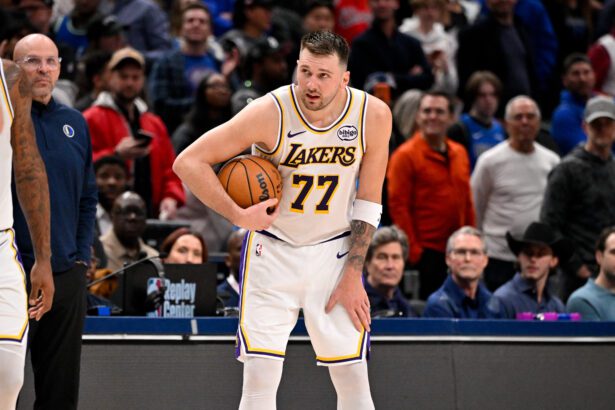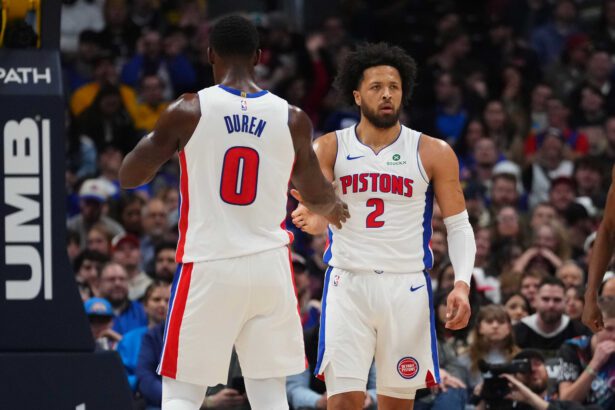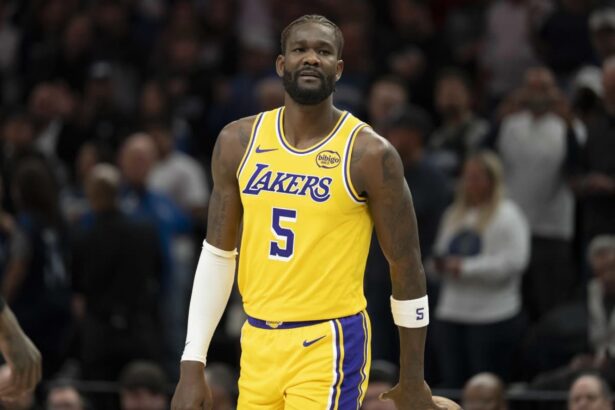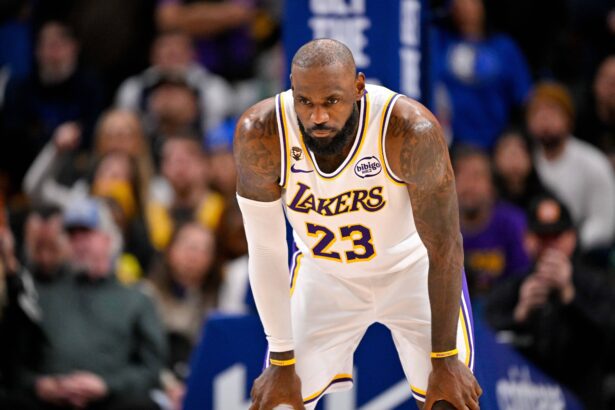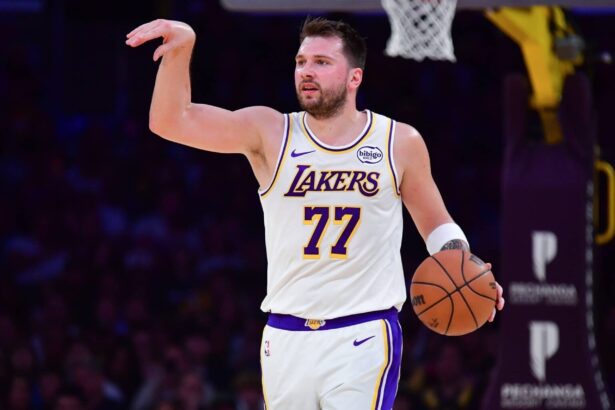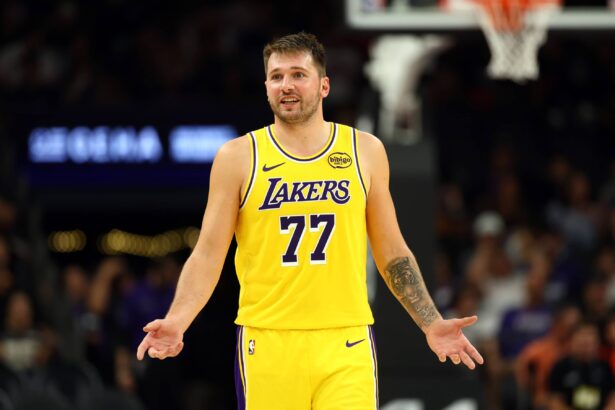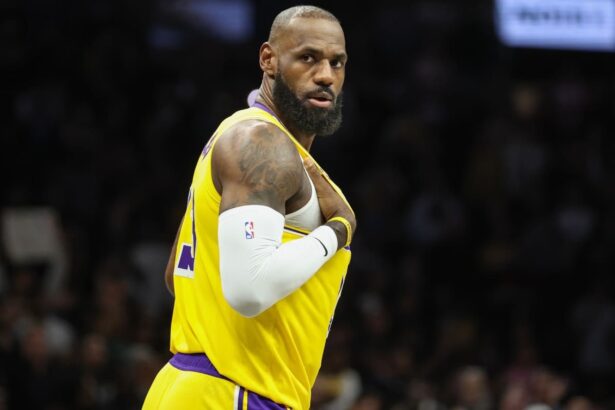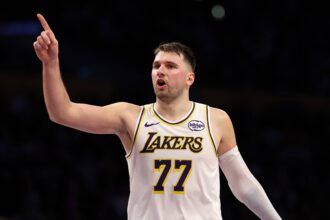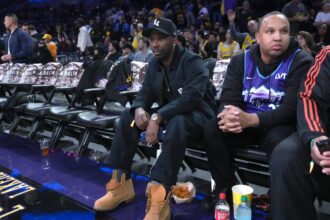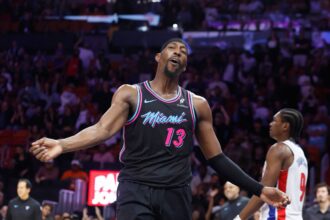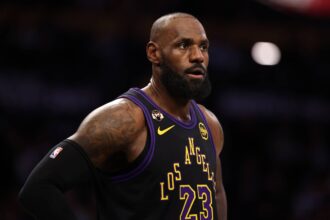Even another epic scoring night from Austin Reaves wasn’t enough to lift the Los Angeles Lakers past the Portland Trail Blazers, as L.A. fell 122-108 on Monday. Reaves poured in 41 points, following up his career-high 51 the night before, but with multiple key players sidelined, including LeBron James, Luka Doncic, Marcus Smart, and Gabe Vincent, the Lakers were left shorthanded and overmatched against Portland’s balanced offense.
The depleted roster struggled to find a rhythm beyond Reaves, committing 25 turnovers and shooting just 25.9% from three-point range. Meanwhile, Portland exploited the gaps in Los Angeles’ lineup, controlling the boards and the paint while maintaining steady scoring from multiple contributors.
The Trail Blazers exposed the limitations of the Lakers’ thin rotation and highlighted some key factors that we need to discuss following this result.
1. Austin Reaves’ Scoring Wasn’t Enough
Austin Reaves put on another scoring clinic, pouring in 41 points to follow up his career-high 51 just a night earlier. He was aggressive from start to finish, attacking the rim, hitting key threes, and drawing fouls, but his efforts weren’t enough to overcome the Lakers’ depleted roster.
With LeBron James, Luka Doncic, Marcus Smart, and Gabe Vincent sidelined, Reaves became the primary ball-handler and offensive creator. The lack of surrounding scoring and playmaking left him isolated against Portland’s disciplined defense, highlighting how much the Lakers rely on depth and experience to be consistent rather than relying on a single game.
2. Perimeter Shooting Woes Hurt The Lakers
The Lakers’ struggles from beyond the arc were glaring, as they made only 7 of 27 three-point attempts (25.9%), far below Portland’s 32.6% on 14-of-43 shooting. Even with Austin Reaves knocking down three triples, the lack of consistent shooting from other perimeter players allowed Portland to crowd the paint and limit driving lanes.
This inefficiency forced the Lakers into more contested midrange shots and predictable offensive sets, making it easier for Portland’s defense to stay organized. Improving spacing and outside shooting will be critical for L.A. if they hope to compete effectively while missing key starters.
3. Portland’s Balanced Attack Dominated
Portland showcased one of its most balanced performances of the season, with six players reaching double-digit scoring. Deni Avdija led the way with 25 points, Jrue Holiday added 24, and Jerami Grant contributed 22 off the bench, while Shaedon Sharpe and Donovan Clingan each added 16, making it difficult for the Lakers to focus their defense on any single player.
The Trail Blazers also shot efficiently, hitting 32.6% from three and capitalizing on 19 offensive rebounds. Their ability to maintain pressure and rotate the ball effectively allowed them to sustain leads throughout the second half, steadily pulling away as the Lakers struggled to generate consistent offense.
4. Turnovers And Fast Breaks Favored The Lakers, But Didn’t Close The Gap
The Lakers struggled with ball security, committing 25 turnovers that Portland converted into 30 points. Despite this, the Blazers maintained composure, minimizing the impact of the mistakes and preventing the Lakers from mounting any sustained comeback runs.
Interestingly, Los Angeles generated 19 fast-break points compared to Portland’s nine, showing that they were able to capitalize on some transition opportunities. However, the Blazers’ balanced half-court attack, coupled with superior interior play and spacing, ultimately neutralized these advantages and kept the Lakers from closing the deficit.
5. Interior Play And Rebounding Tilted In Portland’s Favor
Portland dominated the glass with a 49-42 rebounding advantage, including a 19-12 edge on offensive boards. This allowed them to secure multiple second-chance points and maintain possession advantage, giving the Lakers fewer opportunities to mount a comeback.
Additionally, the Trail Blazers controlled the paint, scoring 62 points compared to L.A.’s 54. Their ability to convert in the post, combined with aggressive offensive rebounding, allowed them to build a decisive lead of 18 points, wearing down the undersized and short-handed Lakers as the game progressed.

